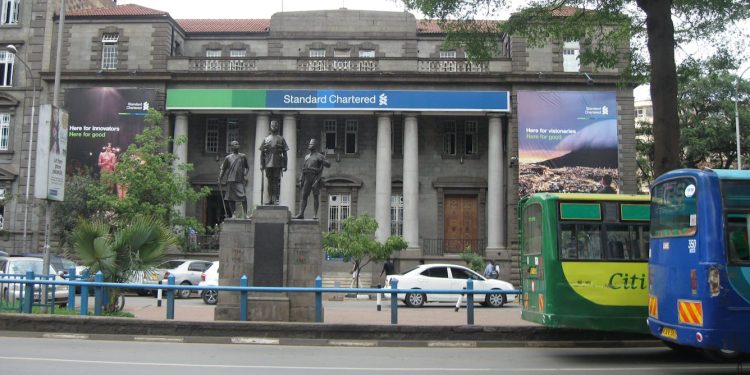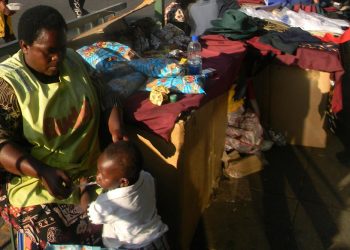The Central Bank of Kenya has made two significant changes in the country’s banking sector. The first is to lift a decade-long moratorium on licensing new banks. Second is to raise capital requirements, the amount of money banks are required to keep readily available compared with the value of other assets they have. Bank capital is what shareholders have invested in the banking business. It’s a buffer against insolvency. Higher capital makes a bank stronger by reassuring depositors that their money is “safe” in case of a financial crisis. Economics professor XN Iraki answers some questions about Kenya’s banking sector and the importance of the two latest policy changes.
What is the state of Kenya’s banking sector?
Kenya has 39 licensed banks. Of these, 17 are classified as foreign-owned with 50% or more shareholding held by foreign interests. All the top commercial banks are listed on the Nairobi Stock Exchange. Three are majority government-owned while the rest are privately owned.
Kenya’s banking sector is known for its dynamism. This is reflected in the adoption of innovations, new product offerings and technology. It is also seen in the growth in assets, deposits and profitability. Finally, it is also evidenced in the mergers, buyouts and growth across borders into the neighbouring countries.
KCB Group – a publicly owned bank that is also the country’s largest – as well as privately owned Equity Bank have established foreign subsidiaries or acquisitions in Uganda, Tanzania, South Sudan, Rwanda, Burundi and the Democratic Republic of Congo.
The use of technology, for instance linking bank accounts with the popular M-pesa mobile payment platform, has made banking easier and more accessible. This has made banking popular with the younger generation, including Generation Z, who are astute at using technology.
The Kenyan banking sector is dominated by nine large banks that accounted for about 90% of the profit in 2024.
Nonetheless, the sector has been stable in recent years. It’s a far cry from the 1980s, when bank failures were constantly in the headlines. Up until 1998, 37 bank failures had been recorded. More followed in 2003 and in 2015.
Why did the government ban new banks 10 years ago? What was the impact?
The moratorium on licensing new banks was instituted in 2015. This followed the failure of Dubai Bank on 14 August 2015 and Imperial Bank on 13 October 2015.
At about the same time, another institution – Chase Bank – was in trouble. It was placed under management on 7 April 2016.
The banks were closed to protect depositors and ensure stability of the sector. But banning new banks was not the best solution. It stifled competition and could have led to the current situation where a few banks dominate the market.
Though the failures were not the first, they were a big blot on Kenya’s financial sector. They could have slowed the growth of the sector in at least two ways. First is the restriction on new players. Second, the perceptions of higher risk would have led to more cautious investment and lending decisions.
What are the limits placed on banks wanting to set up in Kenya?
Banks are subject to regulation and rules set out in the Banking Act. These rules relate to licensing, capital requirements, who may be a shareholder or director, and protection of customer deposits, among other aspects. For this reason, shareholders and key employees are subject to vetting by regulators.
These regulations can be enhanced from time to time. It’s the basis on which the Central Bank of Kenya has increased bank core capital requirements to 5 billion shillings (US$38 million) by 2026. This will double to 10 billion shillings (US$76 million) by 2029. Core capital as defined by Central Bank of Kenya is “shareholders equity in the form of issued and fully paid-up shares of common stock, plus all disclosed reserves, less goodwill or any other intangible assets.”
Higher core capital is expected to strengthen banks and possibly reduce the number of players as some banks merge or are absorbed by stronger players.
This can only be counterbalanced if more banks enter the market after the moratorium was lifted. That would be the ideal case. More competition would lead to lower interest rates, which act as an economic stimulus. It would be easier to borrow money for more consumption or investment.
Higher core capital is a double edged sword. Lifting the moratorium will lead to greater competition if more banks enter the market. But higher core capital might deter new entrants. One speculation is that lifting the moratorium could usher in global brands with more capital and a competitive edge.
Investors who can overcome the higher core capital and join this sector are likely to reap big. Kenyan banks are a popular choice for investors in the security markets and are generally profitable.
What opportunities or pitfalls will the Central Bank be watching out for?
The lifting of the moratorium on new banks and raising capital requirements could be the start of more changes in the Kenyan banking sector.
It’s expected that with new capital requirements Kenyan banks will become bigger and more resilient and serve as the lubricant of economic growth. Bigger and fewer banks are likely to be more stable and easier to supervise.
Will bigger banks adequately respond to the needs of small and microenterprises (SMEs) and individuals? Will they keep the focus on local communities? Could new licences be granted to the politically connected as happened in the past? Here could lie a pitfall. The true test of such policy decisions is achieving faster economic growth and higher standards of living for all.
XN Iraki does not work for, consult, own shares in or receive funding from any company or organisation that would benefit from this article, and has disclosed no relevant affiliations beyond their academic appointment.
















